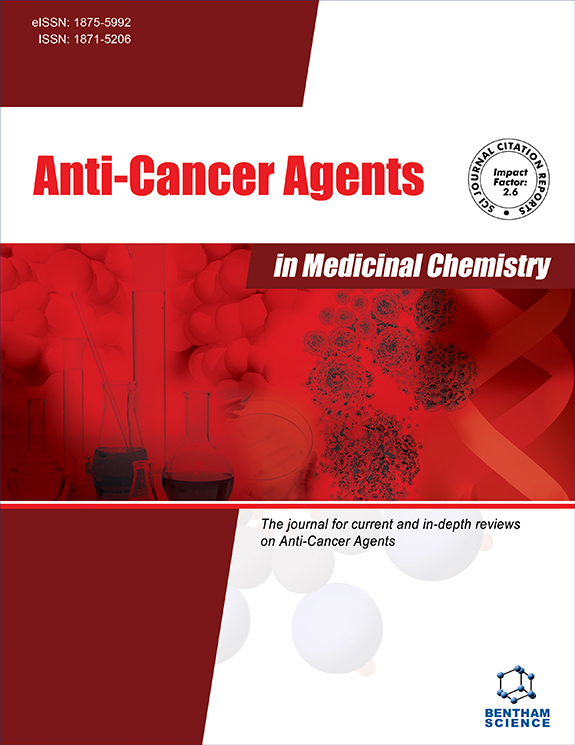
Anti-Cancer Agents in Medicinal Chemistry
Indexed in: Scopus, SCI Expanded, MEDLINE/PubMed
View All- Medicinal chemistry, prevention, diagnosis, and treatment of malignant diseases
- In silico studies of drug-target interaction in anti-cancer drug assessment
- Underlying biology and medicinal chemistry strategies for anti-cancer drug synthesis and development
- New drugs related to a specific target or target class for anticancer drugs
- Drug repositioning in cancer
- Clinical cancer research
- Radiotherapy and systemic treatment of cancer
- Other related areas
Special Issues devoted to crucial topics, providing the latest comprehensive information on cutting-edge areas of research and technological advances, are welcome.
Anti-Cancer Agents in Medicinal Chemistry is an essential journal for every medicinal chemist who wishes to be kept informed and up-to-date with the latest and most important developments in cancer drug discovery.
Editor-in-Chief:
-
Simone Carradori Department of Pharmacy
University of G. d’Annunzio Chieti and Pescara
Chieti
Italy
ISSN: 1871-5206 (Print)
eISSN: 1875-5992 (Online)



